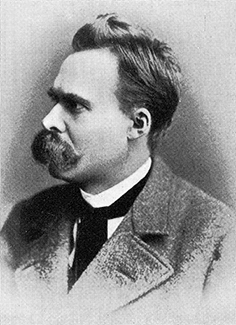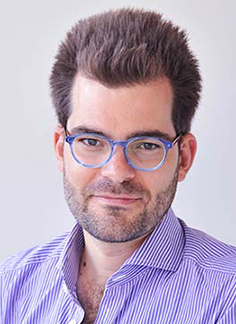Community
Copyright@ Australian Catholic University 1998-2026 | ABN 15 050 192 660 CRICOS registered provider: 00004G | PRV12008
Copyright@ Australian Catholic University 1998-2026 | ABN 15 050 192 660 CRICOS registered provider: 00004G | PRV12008

The influential German philosopher Friedrich Nietzsche famously labelled hope as “the worst of all evils because it prolongs the torments of man”. And in a world filled with disease and disaster, it can certainly be tempting to leave hope behind. After all, you don’t want to have your hopes dashed.
But there is an alternative view of hope, one that sees it as something we need in order to endure calamity and doubt.
“Hope enables us to acknowledge that things are deeply uncertain without being crushed by that realisation,” says David Newheiser, a research fellow at the Institute for Religion and Critical Inquiry.
“It’s a kind of discipline or practice, a sort of resilience, that enables us to hold commitments when we are not sure whether they’re going to work out in the end.”
But hope isn’t always easy. Dr Newheiser begins his book Hope in a Secular Age with an acknowledgement that “it is hard to hope”.
“We invest a lot in the people we love, the communities we care about and the political movements we’re committed to,” he explains. “But often people disappoint us, and that can make it hard to keep hoping.”
Nietzsche might have been right that hope “prolongs the torments” of human beings, but that doesn’t mean we should give up on it.
“I think Nietzsche was tapping into an old philosophical tradition that is critical of hope,” says Dr Newheiser, whose research addresses ethical and political questions in light of Christian thought.
“Greek philosophers like Aristotle, for instance, felt that hope was a bad thing because it can be painful and disruptive.

“But I have a different vision of the human person. I think it can be important to endure disappointment and uncertainty. I think the world would be poorer if we gave up hope just because it is hard.”
Human beings crave certainty. Our brains are hardwired to respond to unpredictable and ambiguous situations with anxiety and stress.
When certainty is unavailable, it can be enticing to employ blind optimism and hollow confidence.
“It’s a tempting response, because the positivity of optimism can make things feel less daunting in the moment,” Dr Newheiser says.
The problem is that optimism is brittle. It can shatter if it’s disappointed.
We’ve seen this through the coronavirus pandemic, where a crudely optimistic approach was revealed as misguided, and arguably made things worse.
“It seems like huge changes are underway, huge shifts in our societies, but it’s not clear how it’s all going to work out,” Dr Newheiser adds.
“And I see some people in public expressing greater confidence than is actually justified. I’ve seen politicians recommending optimism in response to coronavirus, regardless of what the evidence is telling us …
“In that context, I think optimism can be dangerous, and hope offers an alternative.”
So how is hope different to optimism?
“It can be helpful to distinguish them by thinking of optimism as a belief or a feeling that things are going to work out well,” he says.
“Sometimes that can be quite useful. But the trouble is that optimism only appropriate when it’s justified by the evidence.”
In contrast, hope is characterised by honesty and humility. It has built within it an acknowledgement that it is vulnerable to disappointment, and this allows it to hold up even when things are going badly.
“I think there’s something positive about hope,” Dr Newheiser continues, “but it combines this persistent affirmation with negativity and an acknowledgement of uncertainty, and that makes it more robust and resilient, and more attentive to what's actually happening.”
As a scholar of religious studies, Dr Newheiser’s book considers hope in connection with postmodern theory and Christian theology.
While some Christians see faith as providing an existential security that things will work out well in the end, Dr Newheiser understands faith as a kind of risk — a “leap”, as some have called it.
He argues that Christian commitment has uncertainty at its heart.
“Christian faith can’t be justified by objective rational criteria, because we don’t have proofs available to show that Christianity is true,” he says.
“For that reason, in my understanding, faith has to be sustained through hope. Hope stands in contrast to the claim to possess certainty, and it is the thing that allows a faith that is essentially uncertain to continue.”
While Western society is increasingly secular, Dr Newheiser’s research argues that religious concepts continue to reverberate, unconsciously shaping political imagination.
In other words, even if you’re not religious, you can still learn from religious traditions, and benefit from the kind of hope that sustains spiritual belief.
“In my understanding, hope is the capacity that allows us any commitment — personal, political, or religious — to persist without guarantees,” he says.
“And I think it’s possible to hope for something even if you're pretty sure that it's not going to happen.”
One can hope for a fair and just society that is free of prejudice, for example, even if they aren’t optimistic it will be achieved.
“Because racial injustice is so deeply entrenched, I find it difficult to imagine that we will achieve justice in my lifetime,” Dr Newheiser says, “but I still hope that it happens, and I think this is enormously important … to keep hoping and working towards something that one believes might not happen.”
The true power of hope, he concludes, is in its honest fragility.
Hope might not be enough to cure society of its ills, but it can sustain our efforts to address them.
Dr David Newheiser is a researcher at ACU’s Institute for Religion and Critical Inquiry. His work explores negative theology and the political significance of practices of self-critique. His first book, Hope in a Secular Age, responds to contemporary critiques of religion by developing a constructive account of hope.

Hoping to study soon? Explore the courses available at ACU.
Copyright@ Australian Catholic University 1998-2026 | ABN 15 050 192 660 CRICOS registered provider: 00004G | PRV12008